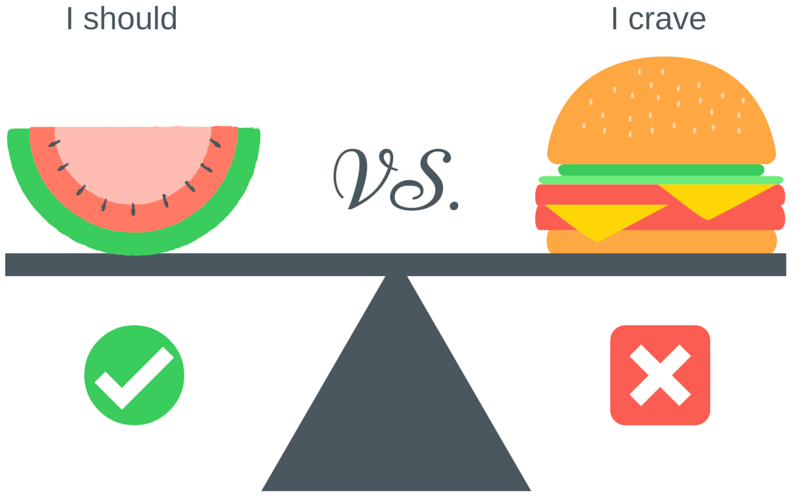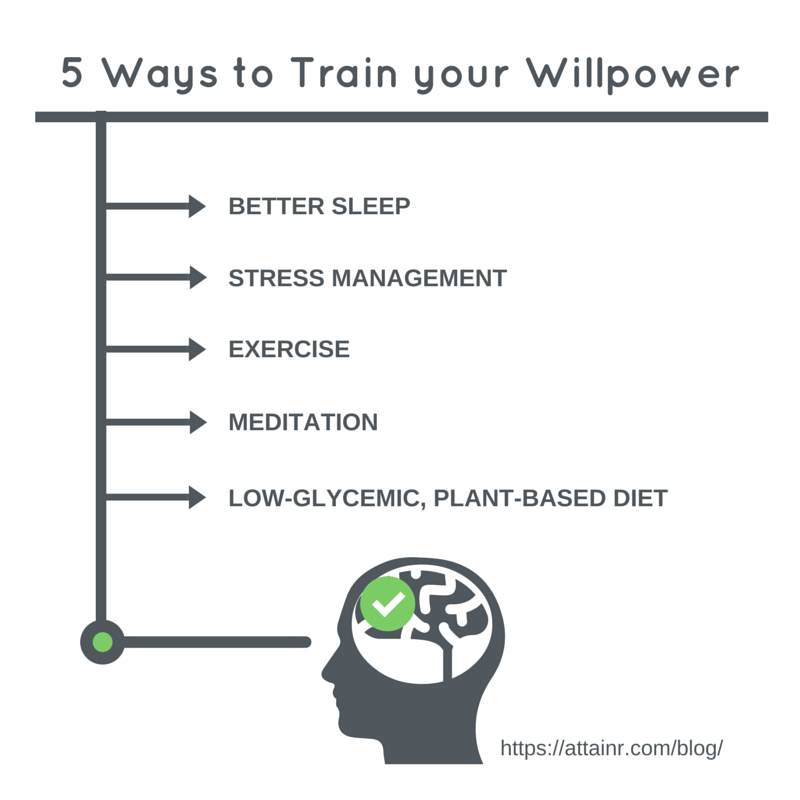
How to Train your Self-Discipline as if it were a Muscle
Marta Palacio
Meditation makes changes to your brain and increases your self-discipline after just two months of practice. This is one of the conclusions of several studies made on the subject of willpower. Learning more about this is essential to manage our energy efficiently, improve our daily lives by decreasing our levels of stress and ultimately reach our goals.
Sadly, if you look for articles about self-discipline online you will probably find tips such as: “visualize your goal”, “avoid all distractions”, or “focus”, which are in general too vague and abstract. We already know we should do all those things, we just don’t want to or don’t feel like it.
The good news is that if you dig a little deeper you’ll find more specific, scientifically based advice. We’ve been investigating the best and worst practices to hardwire your brain to develop bulletproof discipline. This is what we’ve found:
Understanding willpower
Kelly McGonigal, Ph.D., explains willpower as a conflict between two opposite versions of ourselves. We should do something, but we don’t want to. Or we shouldn’t do something, but we want to. And it feels like we are constantly punishing our core selves, keeping them quiet. This is what makes challenges to willpower so harsh. We need to switch our brains to feel like that “better version” of ourselves as the default version, as a natural thing.

In order to know more about this, we recommend you check this study about the difference between using an “I can’t” approach and an “I don’t” approach to facing up to willpower challenges. We’ll talk more about it in another post, but now we want to focus on the physiological aspects of discipline.
In a situation of conflict such as the aforementioned, a series of natural mechanisms is triggered to save you from self-destructive impulses and urges. That is to say, it works in a similar way to stress, having the opposite effect on our bodies. Self-discipline calms us down. We can take a deep breath and count to 10 before we do something we would otherwise regret. Stress, on the contrary, gives us an adrenaline boost so we can act as quickly as possible. This is one of the reasons why high levels of stress break down your willpower.
The Prefrontal Cortex
The prefrontal cortex is the area of your brain located right behind your forehead. It is in charge of emotional responses, behaviour, judgement and attention, and our overall ability to make decisions. It keeps track of your long term goals, and it needs energy to work efficiently and dismiss distractions and momentary urges. Certain activities increase its grey matter, making this area bigger and better connected.
And the best thing is that this can be trained, like a muscle. Your willpower is like your stamina. It is a limited resource, but as you train it and make it stronger, challenges to daily self-control will be increasingly easy.
Train your Willpower Physiology
You don’t need to start doing all these things at once. Just by themselves, each one will increase your willpower. We know acquiring new habits does require discipline in the first place, but the good thing is that these will give you more willpower than they take: Better sleep puts you in a better mood to do physical exercise. Exercising makes you more likely to stick to your goal of eating healthily. Eating more healthily makes you more likely to stick to your goal of meditating for 10 minutes each day. And so on.

Let’s break this down:
Stress management
When we are stressed, our brain responds in the exact opposite way we need to make sound decisions and think straight. Under stress, in fact, your body “turns off” the prefrontal cortex. It prompts your fight-or-flight mode, therefore your body needs quick answers and it immediately focuses on what’s most urgent at that particular moment. Willpower, on the contrary, is a more passive attitude. First you think, then you act, keeping a broad vision of your goal or project in mind to make your decisions better and therefore keep you motivated.
Sleep
The negative effects of sleep deprivation can be seen on brain scans. The prefrontal cortex of sleep deprived brains shows very little activity, it can’t function efficiently. On the other hand, areas of the brain in charge of impulses and instincts tend to show more activity. If we don’t get enough sleep, our brains are physically incapable of making us feel like that “better version” of ourselves.
Just one more hour of sleep per night makes it easier not to fall off the wagon, even in people with serious self-control problems, like people addicted to alcohol or other substances. In case sleeping time is not the issue, at least try to improve the quality of your sleep. Some of the most frequent advice is to turn off all electronic devices one hour in advance before going to bed. Allow your mind to disconnect, and make it a ritual.
Meditation
According to research, changes to the brain can be observed after only 8 weeks of meditation training. It makes sense, since it trains a wide range of skills related to willpower. It requires focusing and self-awareness, an efficient management of stress and impulse control. You don’t need to start attending meditation classes, there are plenty of online guided classes to get you started and teach you how to meditate. It’s something you can do anywhere, anytime. 10 - 15 minutes of meditation per day can be enough, but of course feel free to increase them as much as wanted whenever you feel like it.
Physical exercise
It is not 100% clear why this helps, but it does. It also leads to changes in the brain, mainly in the prefrontal cortex. Working out makes it bigger and better connected, like meditation. How much exercise is enough? Don’t push yourself too hard, take it step by step. About two hours of exercise every week shows serious benefits for your mental and physical health. If you want to do more, even better.
Low-glycemic, plant-based diet
Why a low-glycemic diet? After all, our brains need energy, and its main source of energy is glucose. But the point is not to stop eating sugar, but to keep reasonable and constant blood sugar levels. Big peaks and drops in them sabotage our ability to concentrate, because when our sugar levels drop we start feeling stressed. About the plant-based diet there is simply more evidence in favour of it, but it doesn’t have to work in the same way for everyone. Both, plant-based and low-glycemic are good guidelines to follow, if you do not feel like trying them combined.
These are all separate ways to train the physiology of your willpower. Pick one or two to start, and go for it.
One boosting strategy that doesn’t take any willpower
Finally, here is just a little extra tip, if you don’t feel motivated to start doing any of the aforementioned at the moment. Here is an exercise you can do just now: Write down a letter from your future self to your current self. How are you doing? What problems are you dealing with? Thank your current self for something you did that made your future life better. Try to keep a positive attitude while doing this exercise. You can also do it as an imagination exercise, visualising yourself in a few years at work, or shopping. Be aware that the purpose of this is to make you feel more connected to your future self. Studies show that, the more aware we are of this continuity, the more we care about the health and happiness of our future selves, and the more likely we are to make responsible decisions.